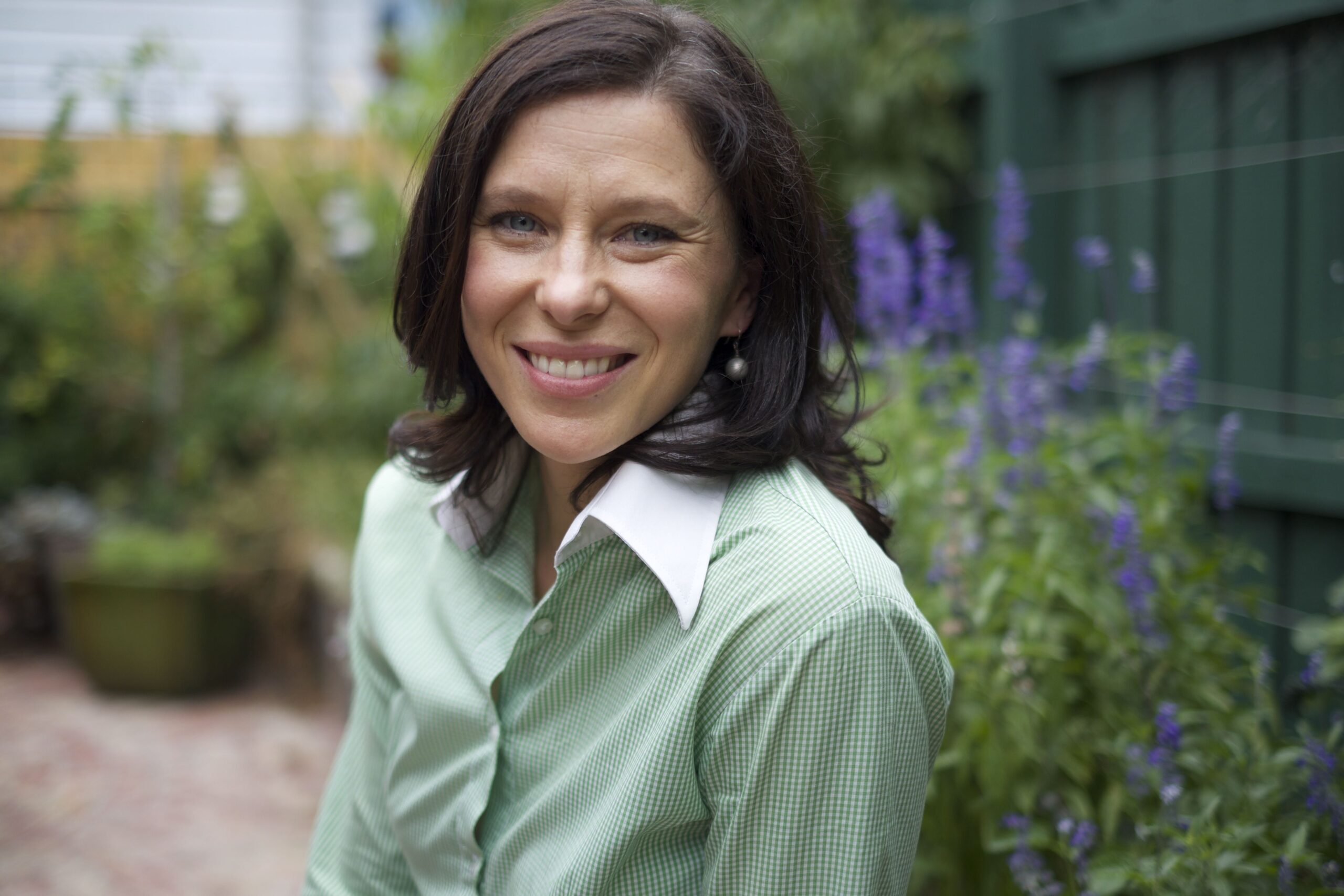No Longer a Taboo: Psychologist Carly Schrever on Judicial Stress and Wellbeing

In a 1995 speech delivered in Hawaii, former High Court of Australia Justice Michael Kirby set out that “the general deference formerly paid to judges has been eroded” and “attacks on judges have now become commonplace”. He added that much of these assaults were coming from politicians.
Kirby further related that these attacks commenced in this country with the High Court 1996 case Wik Peoples versus Queensland, as the court found that native title to land is not, “as a matter of law, necessarily extinguished by the pastoral leases granted by the Crown”.
According to the former High Court justice, the state and federal politicians who were pulling out their knives at the time, weren’t necessarily well versed in “what the judges had written”.
Psychologist and lawyer Carly Schrever found that many judges and magistrates are being adversely impacted by this public criticism coming from various government ministers, which is only leading to the already high levels of stress that those who preside over our nation’s courts are experiencing.
Schrever has been leading research into judicial wellbeing and stress, which is the first of its kind undertaken in this country. And she’s found that while the role of the judicial officer obviously involves high pressure, their emotional wellbeing has for the most part been overlooked.
Breaking new ground
Published in May last year, The Psychological Impact of Judicial Work: Australia’s First Empirical Research Measuring Judicial Stress and Wellbeing involved the surveying of 152 Australian judicial officers from five courts, and in-depth interviews with 60 judges and magistrates.
From the outset, the paper puts forth the case that a well-functioning democracy depends upon an effective judiciary and for too long, those working within the profession have been expected to suck it up, when it comes to any issues they’re having at work.
The caseload of Australian courts is notorious. And when it comes to the content of many of these cases, it’s no wonder it raises judicial officers’ stress levels.
However, since the courts were established centuries ago, the details divulged during trials are meant to simply roll off a judge’s back.
Key findings of the report included many judges and magistrates are relying on alcohol to deal with the stress of their workload, a high-level are suffering “non-specific psychological distress” and a significant number are at risk of burnout.
The unmentionable subject
Kirby delivered a 2014 speech in which he broached the subject of judicial stress. Indeed, it wasn’t the first time he’d spoken on what he described as “the unmentionable subject”. He initially raise the topic in Brisbane before a conference of Supreme Court and Federal Court judges in the 1990s.
“My paper in 1997 sought to explain how the inherent features of the judicial function were prone to occasion stress amongst office holders,” the former High Court Justice said in 2014. He then listed the stress factors of isolation, caseload, decision-making, and a lack of expressed appreciation.
Sydney Criminal Lawyers spoke to Judicial College of Victoria judicial wellbeing advisor Carly Schrever about some of the unique aspects of judicial work that cause stress, the importance of the role of judges and magistrates in our society, and how our nation is leading the way in this field.

In the past, judicial stress and wellbeing has almost been a taboo topic. However, over recent years, a change has occurred, and people are starting to talk about the pressure and strain that the work undertaken by judges and magistrates must put them under.
Ms Schrever, why the silence in the past? And what’s brought about the change?
The culture of the legal profession has traditionally been – and in many ways continues to be – decidedly emotion avoidant and stress denying.
This is due to a range of factors, including regarding emotions as enemies of reason and rationality, and also the adversarial process making it reputationally unsafe to discuss or display vulnerability.
When it comes to the judiciary, in the past, there was a widely held belief that admitting stress might imply admitting some sort of impairment.
Therefore, this would cause a legitimate concern that this might have a detrimental impact on public confidence in the courts.
We now know that equating stress with impairment is an erroneous assumption psychologically. It’s not stress per se, but rather unacknowledged and unmanaged stress, that has the potential to be problematic.
In terms of what has brought about the change, there are two principal reasons:
The first is that the past decade has seen a huge amount of research around the world revealing alarmingly high levels of stress and psychological ill health within the legal profession globally.
This begs the question as to what extent does that extend to the judiciary.
Secondly, in recent years, there’s been a huge increase in public awareness and understanding of mental health issues generally. And with that comes a new expectation on people in positions of responsibility and power.
Whereas once the public might have expected judges and other authority figures to be above or immune to the human condition, now the public expects them to be dealing proactively with identifiable risks to their own mental health.
And that starts with having a conversation about stress in judicial office.
You led the first empirical study into judicial wellbeing in this country. It entailed surveying 152 judges and magistrates from five courts. Sixty of them underwent an in-depth interview.
Overall, how would you say you found judicial officers in Australia are coping with the pressure involved in their work?
My research suggests that Australian judicial officers are coping. But they are also under considerable pressure. So, the question is, for how long they can sustain this pressure.
I used a number of validated psychometric instruments to measure different forms of stress.
What I found was that judicial officers in the study were experiencing very high levels of stress, however their rates of mental ill health – that is symptoms of depression and anxiety – are no higher than the general population.
What this says to me is that judicial officers in Australia have a stress problem, but unlike the rest of the legal profession, this has so far not translated to a widespread mental health problem.
There were some interesting nuances though, for example, it seems that burnout and secondary traumatic stress might be particular occupational risks for judicial officers.
The backlog of cases Australian courts are dealing with is well known. And this high caseload is an obvious feature of the role of judicial officers that would be adversely affecting those working within the profession.
But what are some of the less obvious aspects of the job that are causing judges and magistrates stress?
Workload was certainly a prominent stressor in the minds of the judges and magistrates that I interviewed.
Almost without exception the crushing, unrelenting, oppressive workloads were mentioned as a major source of stress. But alongside stressors of workload are the stressors of work type and work culture.
Judicial officers see daily the parade of human misery come through their courtrooms. They’re dealing with distressing subject matter and distressed individuals in an atmosphere of high emotion and tension.
In the context of all of that, they have to apply complex legal principles and make decisions that significantly impact people’s lives.
But, other than the decision-making task, this exposure to human trauma and distress is not so different from what lawyers, barristers, social workers and mental health professionals face.
What is truly unique about judicial work is that it requires this complex, emotionally draining and high stakes work to be done both in public and in isolation.
So, judges sit alone in the courtroom, and they make their decisions alone. However, the decision-making and the courtroom conduct is the subject of intense public and appellate scrutiny.
Then, add to all of that the historical expectations – always remain stoic and dispassionate – and the traditional culture of not discussing the human dimension of the work, even with one’s colleagues.
Taking all of that together, you have – from a psychological perspective – a potent cocktail of risk factors for occupational stress.
I believe you found that the changing political climate and attitudes of ministers over recent years may also be leading to judges and magistrates experiencing higher stress levels.
Could you elaborate on how that’s been working?
In the interviews, I asked whether the judges and magistrates felt that the forces of stress in the judicial profession were changing over time.
The overwhelming majority said that they felt that the role was more stressful now than it used to be.
They gave a range of examples for that. And a common one was the perception that the executive arm of government no longer considers it their role to protect and defend the judiciary from unfair attack.
Rather now, the executive often publicly attacks and criticises the judiciary directly to score political points.
This was seen as being linked to a steady and, in many ways, understandable decline in public faith in and respect for institutions in general, of which the courts are just one casualty.
Given the long-standing convention that judges do not enter the fray when it comes to public debate about public decision-making, a number of judicial officers told me that this shift and approach from government towards the courts is stressful.
This is because they felt they had no right of reply, and because they were also concerned about it undermining public confidence in the court, which, as you know, is so essential for democracy.
It seems that for a very long-time society has shown no concern to the pressure this highly stressful work has been placing on those involved in it.
In your opinion, why should we as a community be particularly concerned about the wellbeing and stress levels of judicial officers?
It’s true. And in many ways, it’s understandable. Judicial officers inhabit a very privileged position in the profession and in society. They have secure employment, and they’re well remunerated.
I’m sure a lot of judicial officers would agree with me, when I say that it’s understandable that the public might be inclined not to feel too sympathetic towards the occupational stress of the privileged and powerful. That’s a given.
Indeed, many judicial officers have told me that a personal barrier to embracing a full and frank conversation about judicial stress is the acute awareness they have that their stress almost pales in comparison to the stress of those that have appeared before them in court.
So, it’s fair the public is not particularly concerned with the wellbeing or stress levels of judicial officers.
However, they might be interested insofar as it’s a reminder that while the role has been held up as somewhat superhuman, the people in the role are human beings.
They’re human beings doing a very difficult, demanding and draining job in the service of justice and the rule of law.
And at the end of the day, the judicial system is only as healthy as the human beings that inhabit it.
You practiced as a lawyer before turning to psychology. As well as being a Melbourne University PhD candidate, you’re currently the judicial wellbeing advisor at the Judicial College of Victoria.
How did you come to focus on the role of judicial officers and their wellbeing?
As you say, I did start my professional life as a lawyer, and after three years in practice, I returned to university to study psychology.
This was because while I was fascinated with the administration of justice, I realised that it was more from a psychological, than a legal, perspective.
I started working at the judicial college in an education role, while undertaking my postgraduate psychology studies.
While I was doing my masters, I had a conversation with former Chief Judge of the County Court of Victoria Michael Rozenes.
He had perceived for some time that there was an issue to understand when it comes to judicial stress. He’d been decrying the lack of empirical research that might inform that understanding or the conversations a judge might have about it.
Mr Rozenes really encouraged me to embark upon the project that ultimately became my PhD.
This led to the Judicial College of Victoria creating the role of judicial wellbeing advisor, which I now share with gifted and experienced psychologist Sally Ryan.
It also led to me – as I moved into the PhD and began researching the topic, and surveying and interviewing judicial officers – to become genuinely passionate about understanding the psychological impact of judicial work.
And this included a desire to support the men and women who perform the role to do it from a place of wellness and wholeness.
And lastly, Ms Schrever, former High Court Justice Michael Kirby has been raising the issue of judicial stress since the late-1990s. However, your research – the first of its kind in this country – was only released last year.
So, what sort of programs or services to assist judges and magistrates in maintaining their mental wellbeing are out there already? And would you say things are improving?
Things are definitely improving. The past five or six years have seen a real quantum shift in this country in terms of judicial officers and the courts directly grappling with and addressing issues of wellness in office.
I’ve witnessed that full shift. So, when I started the PhD, the topic was still somewhat taboo.
Now, six years on, all courts in the country are having a conversation about judicial wellbeing and thinking about ways of addressing it at the level of the individual judge or magistrate and also the level of the court.
Australia has actually become a world leader, when it comes to recognising and dealing with the issue of judicial stress.
Many Australian courts now have judicial wellbeing plans that involve different aspects: education and awareness raising and prevention of unnecessary sources of stress that might be organisational, structural or cultural in origin.
These programs involve debriefing and counselling, so that judges and magistrates can proactively respond to and metabolise the challenges of the work that they do.
They also ensure that if a judge or magistrate ever finds themselves feeling acutely affected by the work, they have 24/7 access to quality and professional care for that situation.
And as I say, Australia has been recognised in many parts of the world as a leader, and I’ve certainly spoken to jurisdictions in other continents about the work that’s going on here.







